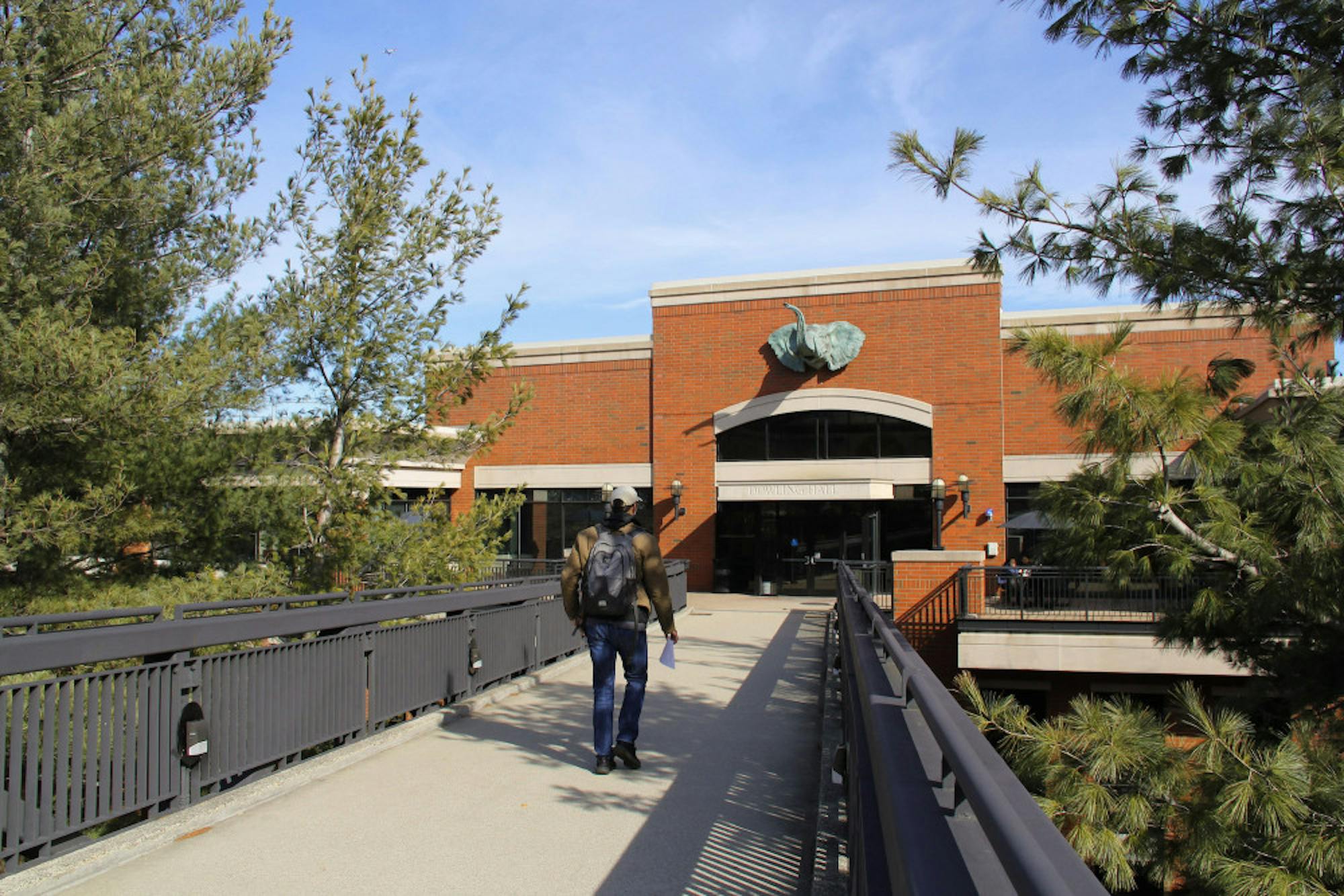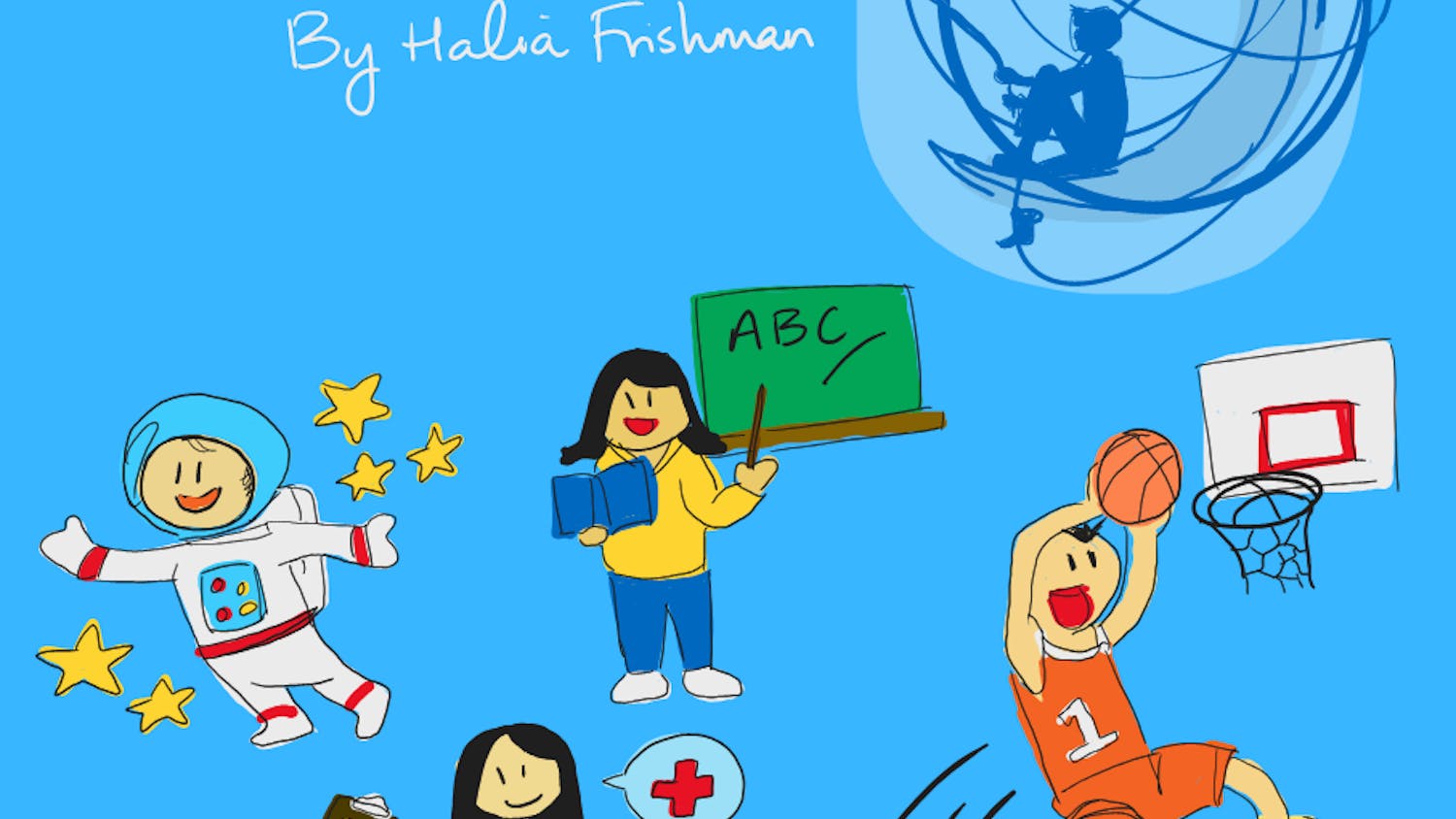In this day and age of endless Zoom and Webex conferences, phone calls are rare. Personal ones are even rarer. A warm, welcoming voice greeted me on the other end: “Hi there, I’m honored to talk to you!”
Compassionate, positive and humble: this is Tufts’ pre-health advisor Amanda Paolitto Stone. Pre-health or not, Stone offers insightful academic and career advice pertinent to all.
A born and raised Bostonian, Stone grew up in Cambridge and went to Tufts for undergraduate studies.
“It’s really nice to be able to come back to the campus and work with a familiar student body,” she noted. At college, Stone was immersed in giving back, involving herself with nonprofits and community organizations in the area.
While she may be a pre-health advisor, her road wasn’t — and still isn’t — exclusively bound to medicine. At Tufts, she majored in American studies with a concentration in African American studies and later continued on to Boston University, where she obtained a master’s in psychology. Helping others through education and personal growth has unfailingly been Stone’s passion, and it shows. Prior to her current role, Stone worked in a juvenile justice advocacy program and a leadership development program for Boston Public Schools.
“I think it's always rewarding when you see a student overcome some really challenging situations or barriers, and then they achieve their goals,” Stone said. “I worked for a number of years closely with high-risk Boston high school girls who were facing poverty and unwanted pregnancies, and then I saw them grow and work, and they are so successful now.”
Committed to and energized by her mentees, Stone continues to check up on them 15 years later and is impressed by the changes they are making.
Wanting to work with these students to pursue higher education, Stone found herself working at Tufts. At Tufts University School of Medicine, Stone worked in the Office of Student Affairs, where she was introduced to how medical school worked. Similar to pre-health advising, the medical school’s Office of Student Affairs provides guidance and assistance to medical students.
“Comparing yourself to others is ultimately a detriment when everyone is unique and has something to offer.”
Amanda Stone
pre-health Advisor at Tufts
Aside from her experience at the school of medicine, Stone has been exposed to the medical field at an early age.
“I have family members who are doctors and nurses in the health care field, so it’s been interesting to learn more about that and support pre-health students,” Stone said.
Considering her multifaceted journey, she says her mentors and role models, including students, have encouraged and inspired her.
“They got me started on the right path,” she said. “I am really inspired by the resilience of the students I have worked with and seeing what people face — people who have way less than I do and have grown up in situations that didn’t mean success — pushes me [to be] better.”
If Stone had to narrow her advice to pre-health students, one of the most important takeaways would be to, first, stay true to yourself; following one’s authentic passions leads to one’s purpose and therefore an avenue in which one can best make an impact, Stone says.
“All pre-health students shouldn’t look alike,” Stone stated. “It’s so individual, and what’s ultimately going to make you the happiest and the strongest candidate is doing things that you are good at and like doing.”
Understandably, Stone notes, one of pre-health students’ greatest (and most common) struggles is comparing themselves to others.
“It’s hard to not look at your friends, or your roommate or your parents, and compare yourself, but if you are a trombone player who wants to play for the homeless — that’s wonderful,” Stone said. “Comparing yourself to others is ultimately a detriment when everyone is unique and has something to offer.”
With that in mind, Stone guides her students to follow what is genuine to them; what a student does in the medical field can be just as valuable as the experiences outside of it.
“All of the things you do can contribute not just to medical school but to you as a practicing physician,” Stone said. “How are you going to communicate with your physician? What commonalities do you have? What are the things that will bring you together with someone of a totally different experience and upbringing?”
Secondly, Stone urges students to not sacrifice success for speed.
“If you don’t feel ready as a senior to apply [to medical school], or if you need a couple years after school to get your footing and earn money, wonderful,” Stone said. “This timeline — medicine or nursing or veterinary medicine — will always be there, and waiting, rarely if ever, hurt somebody.”
Throughout Stone’s three years in the department, she has noticed a rise in the number of pre-health students. According to Stone, part of the increase is due to the evolving definition of pre-health.
“Pre-health used to mean pre-med, and now students are exploring different careers, more students are interested in pre-PA and nursing,” she said.
With COVID-19, Stone expects the volume of pre-health students to increase.
“[Students] have seen a global pandemic and mass suffering,” Stone said. “I’ve seen many become interested in public health and medicine, and it also seems to call out to some people that it’s a way they can participate in providing care to their communities. In the future, it’s going to be interesting to look back and say ‘I decided to become a doctor or nurse because of COVID-19.’”
As she concisely put it: “Nothing like a global pandemic can make you evaluate your career goals.”
Throughout the course of the pandemic, Stone has been inspired by alumni and the students around her.
“We’ve had some students who were working in emergency rooms and people were dying,” Stone said. “They have shown such resilience and compassion towards their patients.”
With the pandemic highlighting health disparities, Stone is interested to see how Tufts students will continue to address these inequities.
As for the future of pre-health advising, Stone views her role as an advocate and educator, and hopes to reduce health inequities during her time at Tufts.
“I have always been really passionate around social justice and trying to reduce racial inequities and disparities, particularly in education,” Stone said. “We have programs within health professions advising tailored to encouraging underrepresented populations to pursue health professions so that remains a really big [point of importance] for me.”
Stone says pre-health advising is trying to become more accessible, so she encourages students to be on the lookout for updates as she hopes to take health professions to the “digital age.”
After Associate Dean of Undergraduate Advising Carol Baffi-Duganretired this June, Stone is now the sole pre-health advisor — a busy position for a school with a large pre-health population. Outside of advising, Stone has been spending time with her 2-year-old daughter, Janine.
“She’s been home with me this entire pandemic, so working a full-time job and being a full-time mom has brought its challenges, but it's been good,” Stone said. “Students will see her in my Zoom going forward, so they can always say hi!”
At the end of the phone call, it was clear what Stone considers to be the best part of the job.
“It’s always the students,” Stone said. “I love to see you all succeed, so whenever I see anybody and can help them through a difficult situation and celebrate their accomplishments, it’s wonderful and makes everything worth it.”






